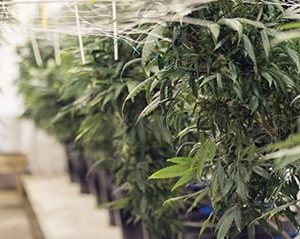- Could Your Grocery Store Meat Be Causing Recurring UTIs?
- Are You Making This Expensive Thermostat Error This Winter?
- Recognizing the Signs of Hypothyroidism
- 10 Strategies to Overcome Insomnia
- Could Artificial Sweeteners Be Aging the Brain Faster?
- Techniques for Soothing Your Nervous System
- Does the Water in Your House Smell Funny? Here’s Why
- Can a Daily Dose of Apple Cider Vinegar Actually Aid Weight Loss?
- 6 Health Beverages That Can Actually Spike Your Blood Sugar
- Treatment Options for Social Anxiety Disorder
U.S. Justice Department Moves to Reclassify Weed as Less Risky Drug

The U.S. Justice Department on Thursday moved to reclassify marijuana as a less dangerous drug, setting the stage for a significant shift in the nation’s drug policy.
In a proposed rule sent to the federal register, officials acknowledge the medical uses of marijuana and state that cannabis has less potential for abuse than more dangerous drugs. What the plan would not do is legalize marijuana outright for recreational use.
“This is monumental,” President Joe Biden said in a video posted on social media Thursday. “Far too many lives have been upended because of a failed approach to marijuana, and I’m committed to righting those wrongs. You have my word on it.”
The Drug Enforcement Administration (DEA) will take public comment on the proposal, in what could turn into a lengthy process. If approved, the rule would move marijuana away from its current classification as a Schedule I drug, alongside heroin and LSD. Instead, weed would become a Schedule III substance, alongside ketamine and some anabolic steroids.
The latest move follows a recommendation made last year by the U.S. Department of Health and Human Services.
President Joe Biden first called for a review of federal marijuana law in October 2022 and pardoned thousands of Americans convicted federally of simple possession of the drug. He has also called on governors and local leaders to take similar steps to erase marijuana convictions.
Public support for the easing of restrictions on marijuana is at an all-time high: Last fall, a Gallup poll found 70% of adults support legalization, the highest level yet recorded by the polling firm.
Importantly, Schedule III drugs are still controlled substances and subject to rules and regulations, and people who traffic in them without permission could still face federal prosecution, the Associated Press reported.
Jack Riley, a former DEA deputy administrator, told the AP he had concerns about the proposed change because he thinks marijuana remains a possible “gateway drug.”
“But in terms of us getting clear to use our resources to combat other major drugs, that’s a positive,” Riley added, noting that fentanyl alone accounts for more than 100,000 deaths in the United States each year.
Federal drug policy has lagged behind many states in recent years, with 38 having legalized medical marijuana and 24 legalizing its recreational use.
More information
The National Institute on Drug Abuse has more on marijuana.
SOURCE: Associated Press
Source: HealthDay
Copyright © 2026 HealthDay. All rights reserved.










